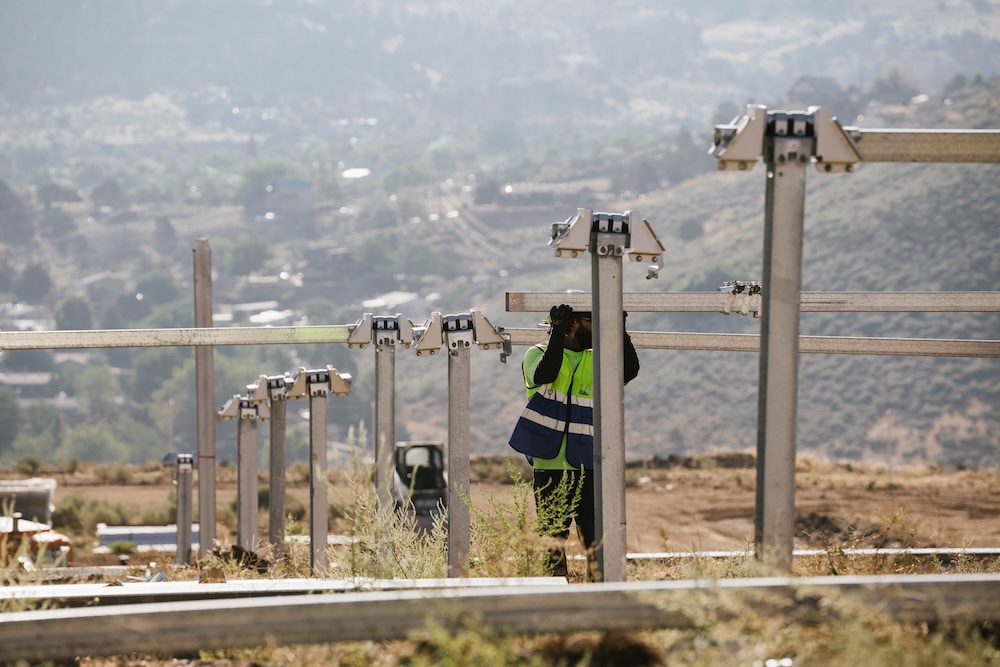The solar industry has long grappled with a significant challenge: accurately modeling energy production on uneven terrain. Traditional energy modeling techniques, while effective for flat surfaces, fall short when applied to the varied topographies that can be found at an increasing number of solar projects. At Nevados, we’ve tackled this problem head-on with our innovative TRACE Controls technology.
Understanding the Problem
Standard backtracking algorithms, widely used in the solar industry, assume flat terrain. As noted in the new Leidos Engineering review of our technology:
“For sites with flat terrain, a standard backtracking schedule can be determined through geometry. These algorithms are well-established throughout the PV industry and relatively straightforward to implement, but do not consider the impacts to row-to-row shading from uneven terrain.”
This oversight leads to significant inaccuracies in energy production estimates. The Leidos report states that “disregarding the impacts of uneven terrain will result in an overestimation of irradiance captured.” In the Northern Hemisphere, it can also lead to underestimation on south-facing slopes.
The Nevados Solution: TRACE Controls
As the experts in solar trackers for challenging terrain, we recognized the need for a more sophisticated approach. Our answer is TRACE Controls, a proprietary terrain-aware backtracking algorithm that creates custom tracker tilt schedules tailored to each site’s unique topography.
TRACE Controls uses advanced raytracing technology to analyze site-specific factors including terrain, PV array layout, and weather patterns. This results in optimized tracker movements that maximize energy capture while minimizing inter-row shading.
As part of the comprehensive TRACE solution, the fully featured TRACE Controls package is included at no extra cost in all Nevados projects, maximizing site performance from day one.
Validated Effectiveness
Leidos Engineering’s independent review confirms the effectiveness of our approach:
“As designed, and assuming proper implementation of the controls, the tracker tilt schedules prescribed by TRACE are effective in improving the energy yield harvested by a PV plant, as compared to standard true-tracking and backtracking strategies.”
Citing performance, Leidos shows TRACE Controls’ custom tilt schedules provide an 8-10% increase in energy production coming from bi-facial capture putting TRACE Controls significantly ahead of traditional methods.
TRACE Controls delivers not just in the lab, but in the field as well. In 2023, across seven different projects, our trackers achieved their prescribed angles within a 2-degree tolerance for 97.5% of their operational time.

Implications for the Industry
The validation of TRACE Controls by Leidos Engineering marks a significant milestone for solar energy modeling. Our technology enables more accurate energy production estimates for projects on challenging terrain, providing developers and investors with greater confidence in project viability and returns.
With more than 1.3 GW contracted, Nevados is leading the charge in unlocking the potential of complex topographies for solar energy production. Our TRACE Controls technology, now validated by independent experts, is set to play a crucial role in expanding solar energy’s reach to previously challenging or unviable sites.
By pioneering solutions that work in harmony with the earth’s natural contours, we’re not just optimizing energy production – we’re reshaping the future of solar deployment.



